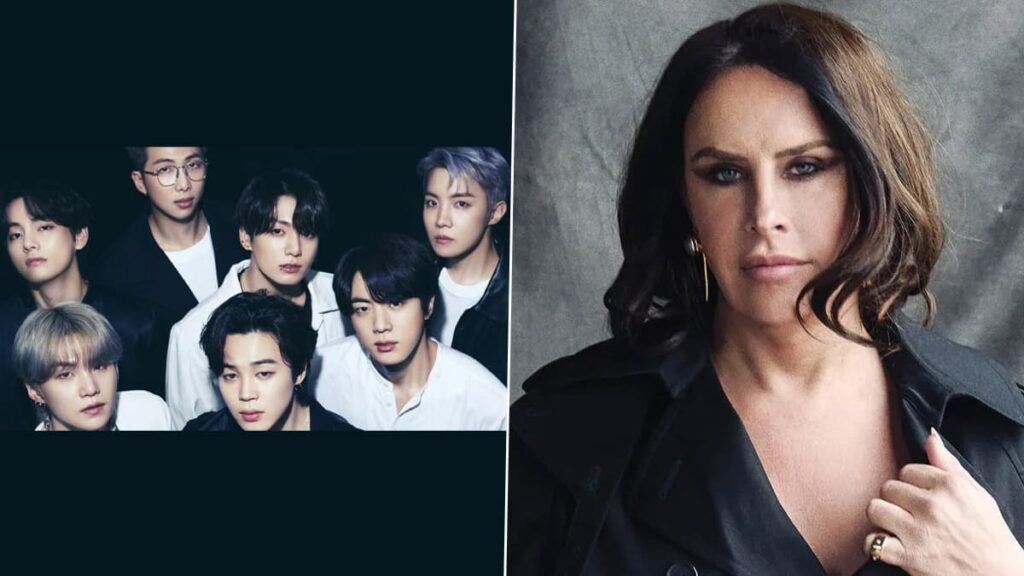In the world of social media, celebrities are often under the microscope for every word they post, and sometimes, their words can stir up more than just curiosity—they can ignite fierce backlash. Actress Karla Sofía Gascón found herself at the center of such a controversy when she posted a now-deleted message about the globally popular South Korean boy band, BTS, and the online fandom, ARMY. The post, which was filled with frustration, quickly gained attention for all the wrong reasons, leading to a firestorm of criticism and calls for accountability.
Gascón, known for her acting roles in Mexican television, posted a message on her social media expressing her frustrations with BTS fans, particularly with what she referred to as “200 of the f*cking Chinese BTS.” The post, which was quickly shared and spread across the internet, sparked intense outrage from BTS fans, who are known for their dedicated and passionate support of the band.
The post itself seemed to target a segment of the fanbase, but the use of language and tone was what led many to believe that it was not just a critique of certain individuals but a broader condemnation of BTS’s fanbase, and by extension, the group itself. Gascón’s use of “Chinese BTS” also seemed to generalize a whole group of fans, which further fueled the anger of ARMY, as BTS has a massive global following, including fans from China and all corners of the world.
In response to the backlash, ARMY members flooded social media with their anger and disappointment, demanding an apology from the actress. Some pointed out that her words seemed racially insensitive and xenophobic, with her characterization of BTS fans as “Chinese” coming across as offensive and divisive. The internet was quickly ablaze with hashtags calling out Gascón and demanding accountability, urging others to stand against such divisive rhetoric in the entertainment industry.
While some of the more vocal members of ARMY chose to engage in a public dialogue and debate with the actress, many others simply expressed their discontent with her post and her seemingly dismissive attitude toward the BTS fandom. Gascón’s decision to delete the post only added fuel to the fire, as fans speculated whether the deletion was a result of the overwhelming criticism she faced or if it was simply an attempt to avoid further controversy.
The post’s removal did not quell the anger from BTS fans, however. ARMY’s response is reflective of the growing sense of solidarity within the fandom, which has repeatedly demonstrated its strength and influence in the world of social media. BTS, known for their messages of unity, love, and acceptance, has cultivated a fanbase that actively defends the group from online negativity. As such, the criticism of Gascón seemed more than just a defense of BTS—it also represented a broader call for respect, inclusivity, and understanding in how fans of different cultures, backgrounds, and nationalities are perceived.
The incident also raised questions about the expectations and responsibilities of public figures, particularly in a time where cancel culture and social media influence are at the forefront of public discourse. Celebrities are often quick to post controversial opinions online, but in doing so, they must be prepared for the consequences that follow when those opinions are deemed harmful or offensive.
Ultimately, Gascón’s post serves as a reminder of the power of words and the far-reaching effects they can have in the digital age. While her message was eventually deleted, the impact of her words and the conversations they sparked will likely linger long after the post is gone. The backlash from BTS fans highlights the strong bond that the ARMY shares, and the unwavering support they continue to show for their idols. For Gascón, the controversy surrounding her post will undoubtedly be a moment of reflection on the responsibilities that come with the platform she holds and the far-reaching impact of her voice in the online space.



